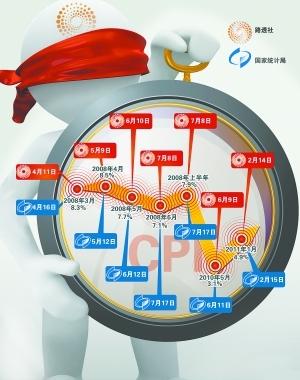 |
| Reuters, the economics version of the World Cup's Paul the octopus? |
Before macro economic data, such as the CPI figures, are released to the public, some foreign and domestic organizations often make predictions. Some media organizations, such as Reuters, have been able to foresee the figures with uncanny accuracy, and have made a number of successful "guesses" in the past three years. This has prompted many to question whether China's CPI figures are being leaked, prompting a major investigation. Fintan Monaghan has the story.
Reuters, the economics version of the World Cup's Paul the octopus?
Not as outlandish a comparison as it may first appear.
5.4-percent, that was Reuters' prediction for this year's May CPI before the figure was released to the public.
It ended up being only point one percent less than the true figure shown to the public five days later.
For Reuters, this wasn't their only successful prediction.
As early as April 2008, Reuters said China's CPI was likely to rise by 8.3-percent in March.
It matched perfectly with the true figure.
In February this year, Reuters predicted January's CPI would rise by 4.9-percent, the figure that once again proved uncannily accurate.
Altogether, Reuters have made seven correct guesses, attributing the analysis to "Chinese staff from the key apartment", in a bid to demonstrate the credibility of the figures.
However, many question the source of Reuters' analysis.
China's stock market shares rebounded on June the 10th, one hour before the market closed, and many point to this as proof of a CPI leak.
So far, five people have been questioned by the police, including one from the National Bureau of Statistics.
According to Sheng Laiyun, the National Bureau of Statistics spokesman, more still needs to be done, including cutting down the the amount of time between the calculation and the release of the CPI data.
As macro economic figures may cause fluctuation in the financial market, solving the CPI leak case will also help ensure fairness in the capital market and as well as the stability of the national economy.
(CNTV June 22, 2011)

